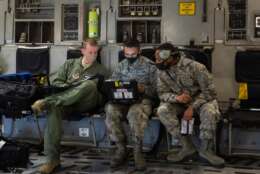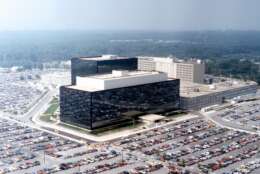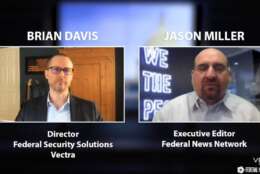Cybersecurity
-
The Defense Department is putting $600 million into 5G in five new military installations.
October 13, 2020 -
Agencies are finding out just how closely linked zero trust is with other long-term efforts like ICAM and BYOD as COVID accelerates each.
October 12, 2020 -
As the country careens headlong into the most chaotic election season in recent history, cybersecurity specialists are raising the alarm about potential threats.
October 12, 2020 -
This week on Federal Tech Talk, Kowsik Guruswamy at Menlo Security and Mike Hatcher of By Light join host John Gilroy to explain why Cloud Based Internet Isolation is a creative way to manage cybersecurity in the ever changing federal IT environment.
October 12, 2020 -
Many agencies have turned to commercial multifactor authentication solutions as an alternative to PIV cards with a huge chunk of the federal workforce still working remotely. But some of those solutions are more secure than others.
October 09, 2020 -
David Waltermire, the technical lead for OSCAL at NIST, and Milica Green, a compliance subject matter expert with Telos Corporation, say the development and implementation of the Open Security Controls Assessment Language (OSCAL) will reduce the time, cost and challenges of FedRAMP certifications.
October 08, 2020 -
The State Department has been working to establish a new cybersecurity bureau to work with other agencies. Only it hasn't exactly told them what it's up to and that could lead to all sorts of problems.
October 07, 2020 -
The Cybersecurity and Infrastructure Security Agency will offer its Automated Information Sharing (AIS) program and new vulnerability disclosure platform as shared services to help improve the sharing of cyber threats.
October 06, 2020 -
DoD CIO Dana Deasy says officials have been finding temporary homes for cloud applications that were counting on the long-delayed JEDI program. Other preparatory that's not technically part of the contract has been proceeding apace too.
October 05, 2020 -
Brian Davis, the director for federal security solutions at Vectra, said with the amount of users and data traversing any organization’s network, trying to understand what is safe behavior and what is being done by malicious actors is getting more difficult.
October 05, 2020 -
We knew coming into 2020 that we’d likely be facing adversaries attempting to influence our campaigns, elections and democracy as they did four years ago.
October 02, 2020 -
In today's Federal Newscast, the Office of the Director of National Intelligence has extended waivers for agencies requesting more time to excise that gear from their networks.
October 02, 2020 -
FBI Deputy Assistant Director Clyde Wallace said much of the bureau’s new strategy focuses on its leadership of the National Cyber Investigative Joint Task Force.
October 01, 2020 -
The Pentagon issued an interim rule under the Defense Federal Acquisition Regulations on Sept. 29 to add more clarity around the implementation timeline and around the requirements contractors will have to adhere to over the next five years under the Cybersecurity Maturity Model Certification (CMMC) program.
September 30, 2020 -
A concept already popular within Defense spaces is beginning to make its way into the private sector cybersecurity community.
September 29, 2020















